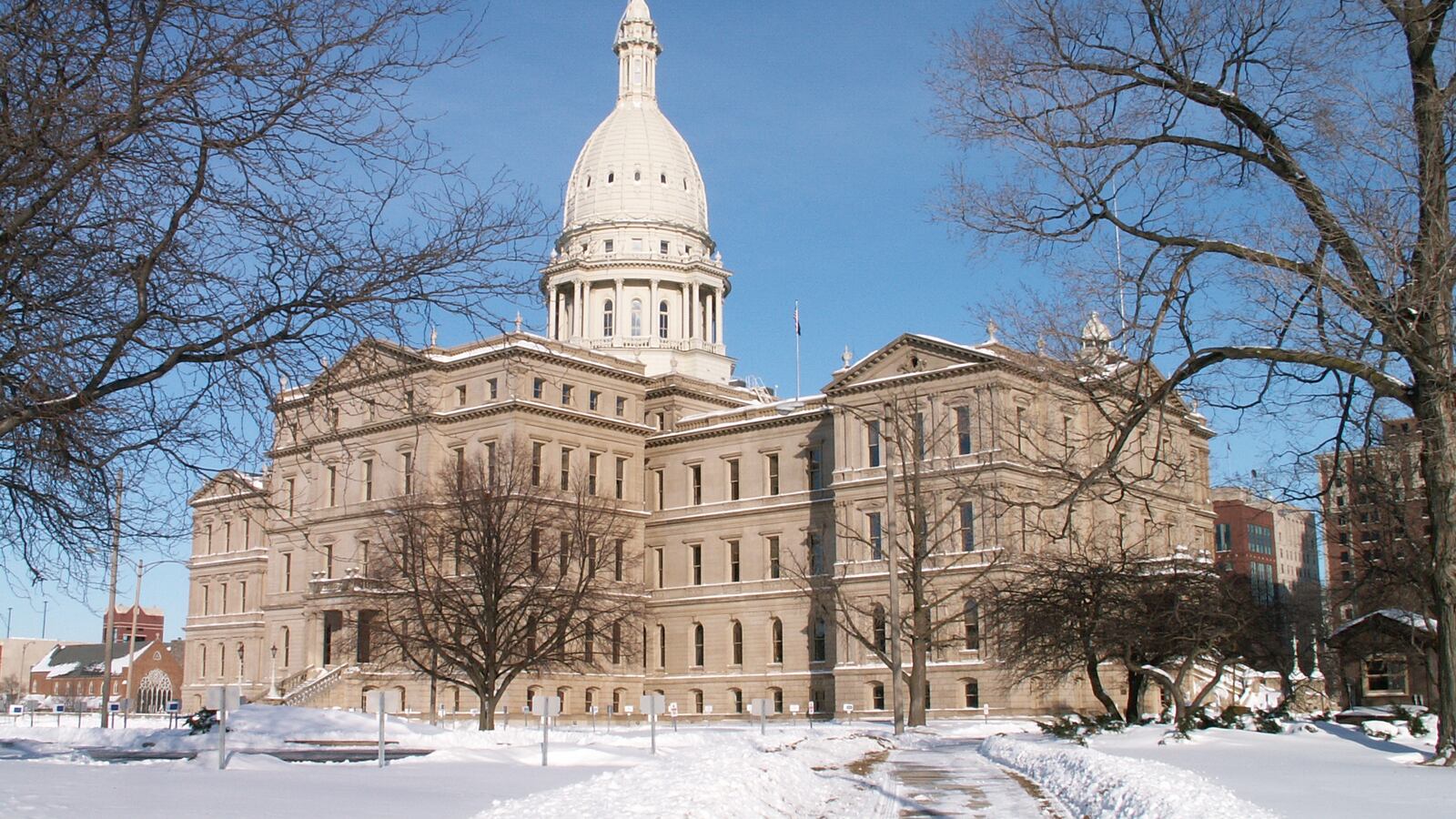Gov. Gretchen Whitmer’s proposal to sharply increase education funding faces an uphill climb in the Republican-dominated legislature.
A proposed 45 cent increase of the state tax on gasoline — the key source of funding for her education budget — drew strong opposition from top Republicans. Lee Chatfield, the Republican speaker of the House, tweeted his opposition even before Whitmer began her budget address before a Republican-controlled joint committee on Tuesday morning.
Anticipating the opposition, Whitmer used her budget address to plead for bipartisan support.
“We can put Michigan on the path to prosperity… or kick the can down the road and watch as our roads get worse [and] our kids fall further behind,” she said, adding: “I know how difficult your job is. I had your job. I’m not asking something that is easy. I get that.”
While the gas tax is being framed as the touchstone of Whitmer’s plan to fix Michigan’s roads, it is also essential to her proposed $500 million boost to the school budget.
Craig Thiel, research director for the Citizens Research Council of Michigan, said that revenue from the gas tax would allow Whitmer’s administration to shift money earmarked for roads over to universities. In turn, a chunk of the schools budget that was being funneled to universities would be returned to K-12 schools.
“The K-12 budget increase is premised on getting $500 million back from universities,” Thiel said.
In one possible scenario, Thiel said, Republicans could counter-offer a smaller gas tax increase, which would likely translate to a smaller increase in funding for schools.
“[Republicans] may come back with a proposal, with the numbers slightly modified on any of those fronts, and still get some increase in schools,” he said.
The gas tax, which would be the highest in the U.S., would be immediately felt by drivers across the state. Whitmer is seeking to soften the blow by increasing a tax credit for low- and middle-income workers.
There were signs could draw some bi-partisan support, as Democrats and education advocates applauded the plan. Also backing the proposal was the typically-conservative Business Leaders of America, which heads a group of business organizations focused on education and infrastructure issues.
“The amount of funding she seeks through user fees is very similar to previous conclusions BLM has reached based on independent research,” said Doug Rothwell, president of the organization, in a statement published on the group’s website.
In calling for the tax hike, Whitmer decried an “education crisis,” saying Michigan’s students have fallen behind their peers in other states as lawmakers slashed funding for schools.
Yet many Republicans sharply disagree with Whitmer’s narrative of a school system in dire straits. In discussions about school funding, the two sides often point to entirely different numbers, even disagreeing on how to adjust the numbers for inflation in order to track changes in funding over time.
In her address on Tuesday, Whitmer cited a Michigan State Study that found worst-in-the-nation declines in school funding in Michigan after adjusting inflation.
But many Republicans point instead to consecutive increases to school funding in recent years as evidence that their party has, in fact, supported schools during the eight years they controlled every part of the state government.
“With smart budgeting, we can continue to fix our roads and infrastructure, support our schools and our students, keep our state on solid financial footing, and promote efficient and effective government,” said Jim Stamas, the Republican chair of the Senate Appropriations Committee, in a prepared statement about Whitmer’s proposal.
Working in Whitmer’s favor is the fact that her proposal is far from the big-ticket overhaul of education funding that many of her supporters would like to see. While she has endorsed a widely-cited blueprint for such an overhaul that was released by education and business leaders last year, her budget doesn’t come close to the billions of dollars that would be required to fully implement that plan.
“You’re not going to be able to solve the whole problem with the gas tax,” said David Arsen, a professor at Michigan State University’s College of Education. He added that the budget, which allocates additional money for students considered at-risk, is a strong first step towards the blueprint.
“It’s serious embrace of those recommendations,” he said.
As Republicans digest Whitmer’s proposal, she is embarking on a trip across the state to stump publicly for her budget in a series of town halls and speeches. Her request for tax revenue is a stark departure after eight years of Republican control at every level of state government, and her case rests on the idea that problems with Michigan schools and infrastructure have reached crisis levels.
Whitmer’s tour will start on the west side of the state, where she may run into constituents like Brad Paquette’s.
Paquette, a Republican representative from southwest Michigan and vice chair of the House education committee, has already raised questions about the wisdom of Whitmer’s proposal.
“With so many important priorities, like fixing our roads, I question where the money for these proposed increases will come from,” Paquette said in an emailed statement. “I would want to discuss the issue with my colleagues who serve on appropriations to make sure we are growing education funding in a sustainable way and we aren’t making false promises the state can’t keep.”

